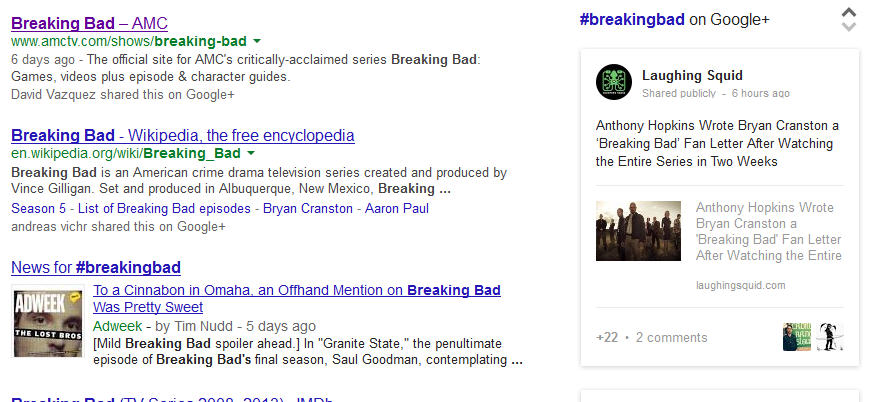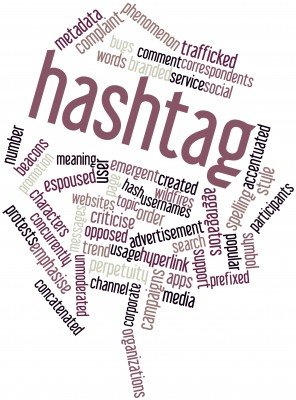 What started as a single-network phenomenon has rapidly evolved in 2013 to be a wave of the future, a look at how online searches are being revolutionized. Hashtags are here, they’re becoming more popular and they’re not going away any time soon. This means the SEO landscape is changing once again.
What started as a single-network phenomenon has rapidly evolved in 2013 to be a wave of the future, a look at how online searches are being revolutionized. Hashtags are here, they’re becoming more popular and they’re not going away any time soon. This means the SEO landscape is changing once again.
Why Now?
At the end of last month, Google announced their entrance into the hashtag world. Why now? While hashtags have been a part of the Twittersphere since its inception, as a way to organize search results, Facebook and Google+ have also jumped on the bandwagon this past year.
While many skeptics were unsure of the potential outcome or even downfall that could occur, the change was seamless and took off quickly. In fact, in the first 2 weeks, 56% of the top 100 brands on Facebook shared a status with a hashtag.
How it Works
Users can now search Google with “#keyword” for the hashtags they’d like to see. Results will appear on the right side of Google’s SERP that includes relevant hashtag postings from Google+ that are public or have been made public to the user. For the most results, a searcher must be signed into their Google+ account. Here is an example of the Google Hashtag search results from one of my favorite shows–Breaking Bad (why oh whye did it have to end?).

Google Hashtag Search: #BreakingBad
While currently the widget only displays Google+ postings, Google still places related social media posts from Twitter, Pinterest and others on their main results section. Google also politely links to Twitter and Facebook’s hashtag search at the bottom their hashtag widget.
What it Means for Your Business
Reasons continue to stack up on why companies should be on this social network. Matter of fact, it has always been more than a social tool with its local SEO advantages and +1’s. This is just another step (and I hardly think the last) to creating more personalized search results. Below are two things to take into consideration.
Focus Less on Sponsored Links
Because of the real estate hashtag search results, sponsored links will soon have less of a potential impact than hashtag search results. Because of this, your clients should be encouraged to spend less on these links and more on SEO efforts to improve organic search engine rankings.
Optimize Your Posts
If you’re not using hashtags, there has never been a better time to start than now. Don’t fall into the rut of overusing hashtags but make sure you do include relevant hashtags that people might be searching. Find what’s trending on Google and include it in a relevant post on Google+.
The new Google hashtag search displays the “best” hashtagged results. That means you need to have more than just your hashtag in the post. Include a great image and get friends and fans to share it. As more and more SEOs embrace this technique after learning of the benefits, the competition will increase. Get ahead of it by starting now.
- Top Tips on Ways to Get More Clicks on Your Website - October 25, 2019
- The Quick Guide to Instagram Hashtag Research - August 15, 2016
- 7 Tools to Improve Local SEO in2016 - June 13, 2016

